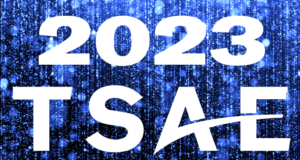

Mark D. Atkinson, JD, CAE
Judge Mark D. Atkinson JD, CAE, CEO, Texas Center for the Judiciary has been a TSAE member since 2013 and earned his CAE in February of this year. Below he shares his first-hand experience of preparing to take the CAE Exam last December and what it has meant to his career as an association executive.
When I was first selected to serve as the Texas Center for the Judiciary’s (TCJ) Chief Executive Officer, I knew little about the 501(c)(3) non-profit world. Realizing that TCJ is a potentially high profile, primarily government-funded institution, the membership of which was comprised entirely by elected officials, I knew that I had some quick learning to do.
Most of my knowledge and experience with governance came from my years in the courthouse, both in the courtroom and in committee service, little or none of which involved corporate risk management, non-profit tax implications, or executive management. I would be taking on duties new to me, such as signing large hotel and database contract, determining employee benefits, obtaining director and officer insurance policies and more. In addition to that, were the strict requirements of our funding grants, both state and federal, amounting to millions of dollars. Thankfully, our talented and hard-working staff kept the place functioning at a high level of performance as I did what amounted to on-the-job training.
At a Board of Directors’ orientation meeting, a retired CEO, serving as a facilitator, suggested that I be encouraged to seek a certain certification in executive management. This would involve study and the taking and passing of a lengthy exam. If I passed, I would be awarded the designation of Certified Association Executive (CAE). The CAE credential elevates professional standards, enhances individual performance, and designates those who demonstrate knowledge essential to the practice of association management. I decided to pursue it. Before I could even register for the exam, I had to have a) been serving as a CEO for no less than three years, and b) attended 100 hours of learning through conferences, working luncheons and webinars.
Once eligible, I registered to take the exam and began attending weekly study courses offered by TSAE, as well as reading thick textbooks. I soon began to ask myself if this was really such a good idea. About 70 percent of those taking the exam passed. Some CEOs were said to have failed because they answered exam questions as if they were in their own organizations, as opposed to the principles taught in the study materials.
I don’t remember ever studying so hard, certainly since the Bar Exam. The texts I read were devoted to association law and to association management theories and practices.
I came across some very foreign things, such as the term “glocalization.” Now you probably are familiar with the term, but I had never heard of it before. If you’re not familiar with it, here’s the Wikipedia definition: glocalization: a portmanteau of globalization and localization. (Great — there’s another word for me to look up.)
I came across a news article claiming that memory was enhanced when the scent of rosemary was present — go ahead, Google it. So, my wife returned from the store with a little device called a personal fan diffuser. You were to put a couple of drops of rosemary oil into the device and turn it on. The resulting effect was to fill my home office with a very strong fragrance. Right off the bat, I noticed effects. I became congested and nauseated.
I took the four-hour, 200 multiple-choice-question exam on the first Friday morning in December with six other people. To my surprise, the questions were more about situational responses and less about laws and regulations.
Six weeks later, I received my results in the mail. I was traveling and reluctantly asked my wife to read the results. I had passed, and was therefore awarded the designation of Certified Association Executive from the American Society of Association Executives.
So, how could this be of value to TCJ? The answer is that, from the study materials, I learned about strategic management; identity and branding; financial management; strategic planning and thinking; governance; volunteer leadership development; member engagement; ethics; development of programs, products and services; fundraising, sponsorship and development programs; meetings and events; certification, accreditation and licensure; affinity programs; professional development programs and delivery systems; general leadership; diversity; interpersonal skills and group facilitation; negotiating; human resources; technology; legal and risk management; vendor and supplier management; business planning; knowledge management; research, evaluation and statistics; public policy; government relations; coalition building; marketing and publications, media and messaging.
I learned that employees should find their workplace a productive and happy place to be each day, that members decide to contribute to associations because they believe in and support the place rather to simply shore up funds, and that diversity should be an ingrained value, throughout the membership, voluntary leaders, and staff.
I would like to express my deep appreciation to my Board for encouraging and supporting me in this effort. I hope it will help me serve my members in the best ways possible. I’ll be glad to discuss any of this and the knowledge I gleaned, any place and any time; but, please — please — don’t ask me to talk about glocalization.
So I am now proud to sign this: Judge Mark D. Atkinson JD, CAE.
Photo credit: FuzzBones/Shutterstock.com
 Association Leadership TSAE: Connecting association professionals to peers, resources, information and inspiration.
Association Leadership TSAE: Connecting association professionals to peers, resources, information and inspiration.

